The needs of startups are unique because they are currently focused on building their businesses. To grow a business, startups need an eCommerce platform that can help them process transactions and manage inventory.
While there are many eCommerce platforms available, there is no “best” solution for every situation. It can be challenging to find the right fit because every platform offers different features, and each startup has a unique set of requirements. To meet the needs of startups, eCommerce providers should consider features such as:
Why do startups need eCommerce platforms?
The features that make eCommerce so popular for startups include a search engine, built-in marketing tools, and an easy-to-use navigation system.
However, based on the needs of a startup, the requirements and feature sets will vary. The best eCommerce platform for a startup will offer the features most relevant to their business.
Let’s look at the top ten eCommerce platforms to see which one might be best for your startup:
Top 10 Ecommerce Platforms For Startups
- Prestashop – best for small and medium businesses
- WooCommerce – best for entrepreneurs
- 3dcart – best for easy setup
- Squarespace – best for creative tools
- BigCommerce – best for ease of use
- Wix – best for free eCommerce
- Magento – best for eCommerce experts
- Volusion – best for online retailers
- Weebly – best for all levels of experience
- Shopify – best for website owners
1. Prestashop – best for small and medium businesses
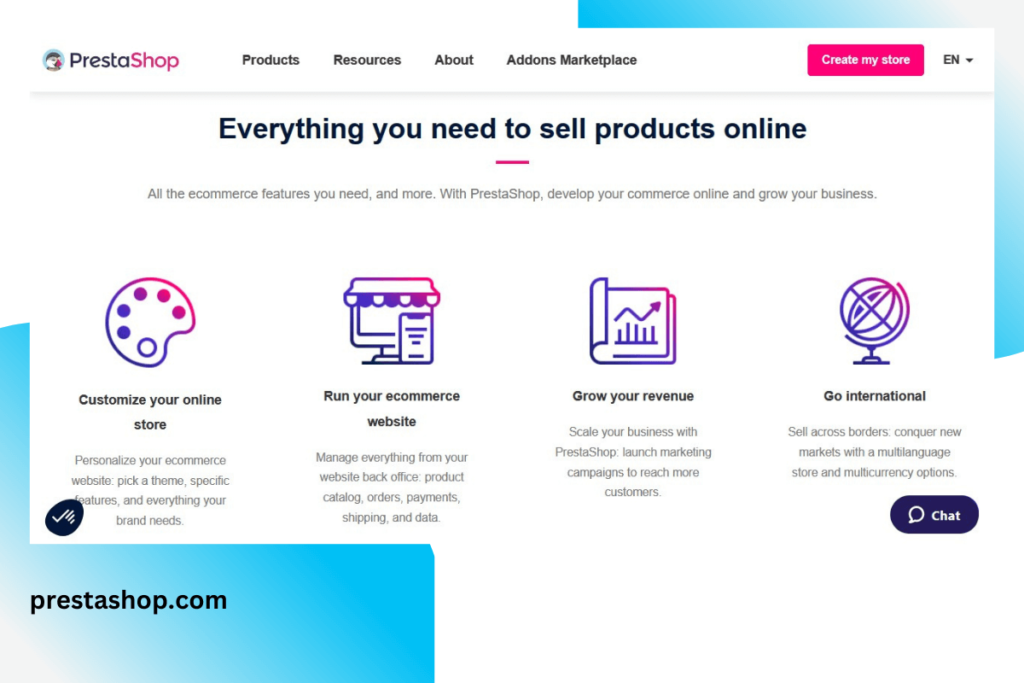
Prestashop is a free, open-source platform that includes a range of features to meet small and medium businesses’ needs. The features include mobile checkout, built-in SEO optimization, social media integrations, order management, and a user marketplace for developers.
Prestashop is quite popular, but it hasn’t caught on with large organizations. Nevertheless, it’s a good option for startups that are not yet ready to invest in a proprietary eCommerce platform. In addition, Prestashop is simple to use, and the mobile app makes transactions easier.
You can find helpful information on the community forums, and there are also many support options such as email, ticketing, and phone. As a startup, you’ll have access to a lot of documentation to help you get started with the software.
» MORE: PrestaShop Pricing
2. WooCommerce – best for entrepreneurs
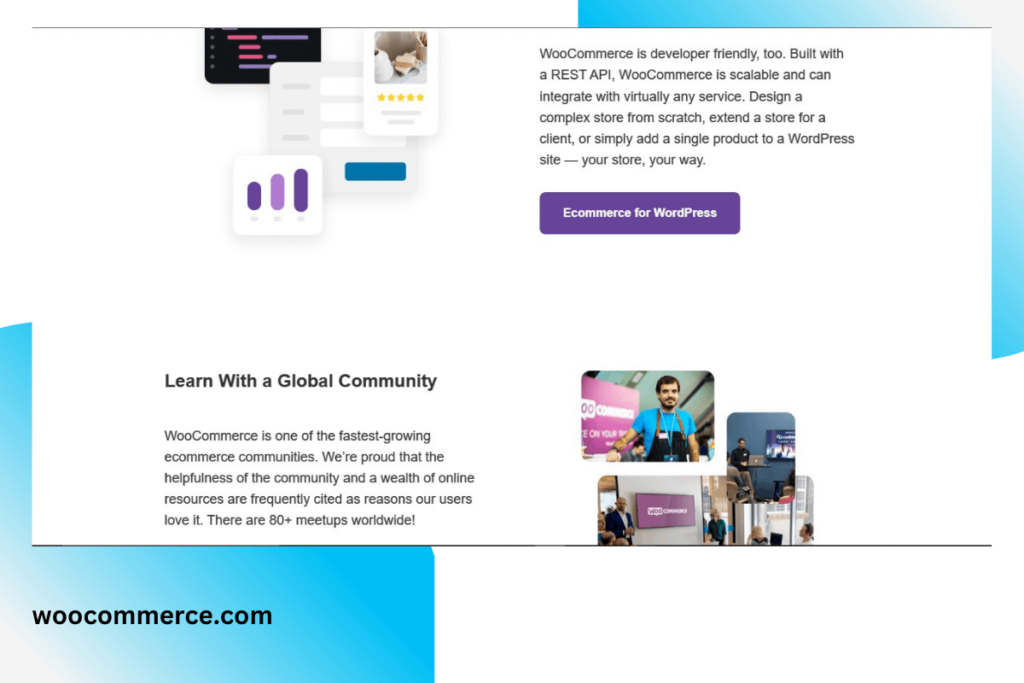
WooCommerce is an open-source eCommerce platform that’s also free and easy to use for entrepreneurs. The features include built-in inventory control, multiple payment methods, product reviews and customizations, and a global inventory.
WooCommerce is popular among small to medium-sized businesses because it’s easy to use and install. The features are also easy to configure, and the platform has a low learning curve. In addition, many of the content management systems integrate with WooCommerce.
The platform offers many customizable features, and it’s one of the most widely used eCommerce platforms globally. It’s not the most popular platform for small businesses, but it’s one of the more secure solutions on this list.
» MORE: Best WooCommerce Hosting
3. 3dcart/Shift4Shop – best for easy setup
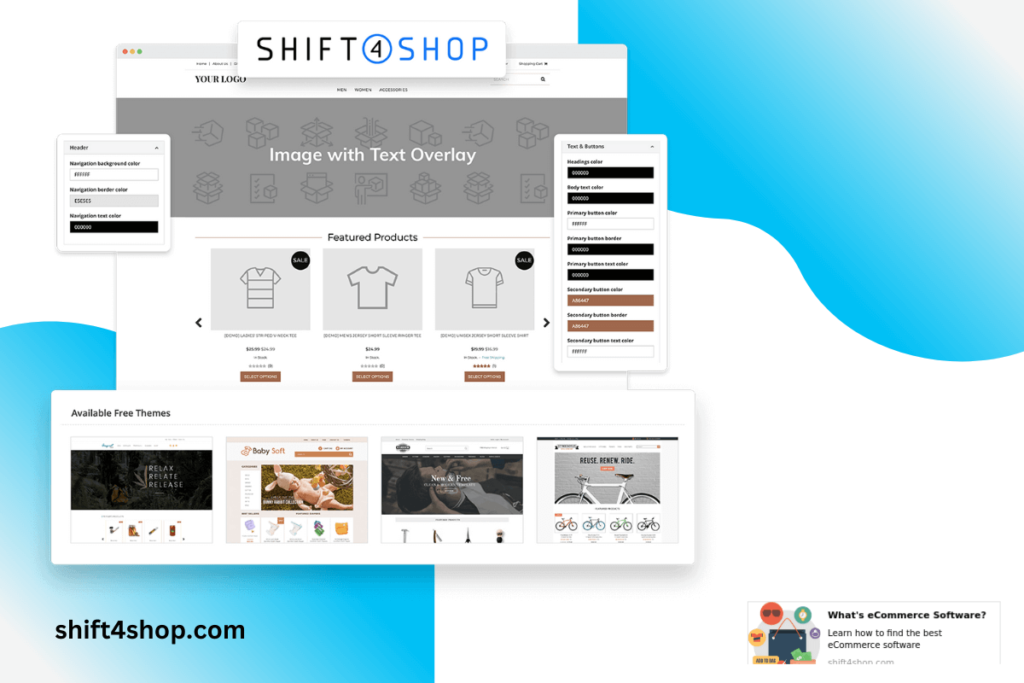
3dcart is a popular cloud-based eCommerce platform that includes various features designed for small and medium-sized businesses. The features include a mobile app, blogger tool integration, multiple payment methods, product reviews, and bookkeeping services.
3dcart has a wide range of integrations, including DNN and WordPress. This means that you can build your site using these eCommerce platforms, and 3dcart will provide the technical expertise to enable you to sell products.
Startups that are using 3dcart report that it’s easy to set up and use. The platform is easy to manage and offers a simple interface for managing inventory. 3dcart also provides useful features for managing sales, inventory, and order fulfillment.
» MORE: How to start an e-commerce business?
4. Squarespace – best for creative tools
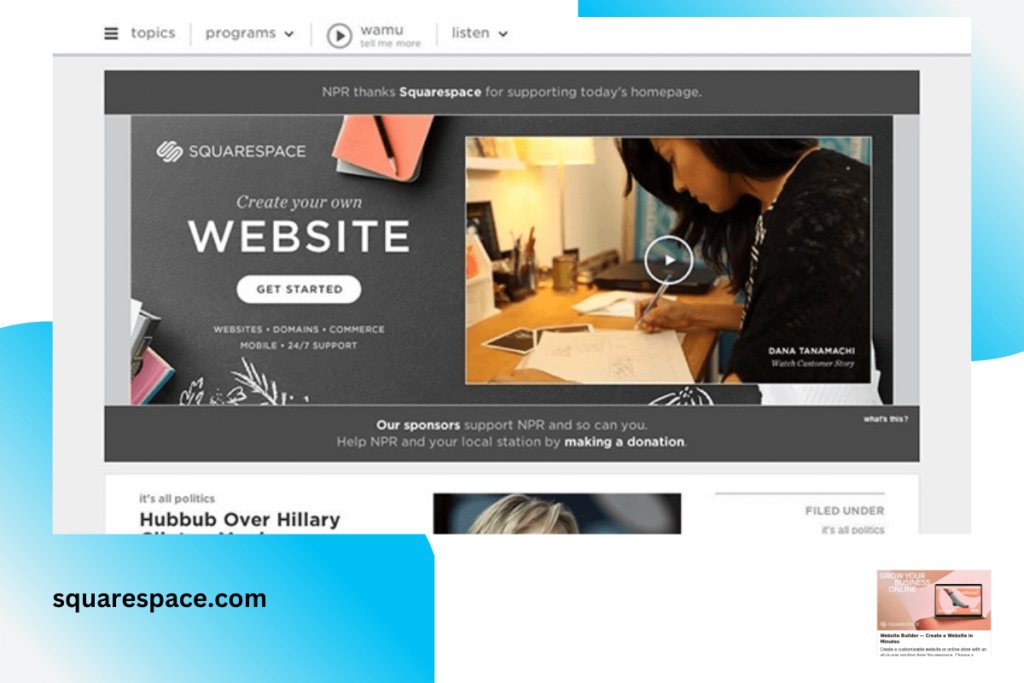
Squarespace is a website-building platform that also provides eCommerce options for small businesses. The Squarespace platform offers a wide range of features, including product reviews, SEO optimization tools, mobile checkout, payment gateway integrations, and user accounts.
One of the Squarespace platform’s unique features is that it allows you to record and publish your videos in its suite of creative tools. This means that you can integrate video and audio recording into your website layout and features.
Squarespace is a good eCommerce platform for startups. It’s easy to use, and the platform also includes video training and excellent support for managing your business. It’s not the most popular platform for startups. Still, it has a range of useful features for companies and solutions for integrating your website with other platform solutions.
» MORE: Squarespace Pricing
5. BigCommerce – best for ease of use
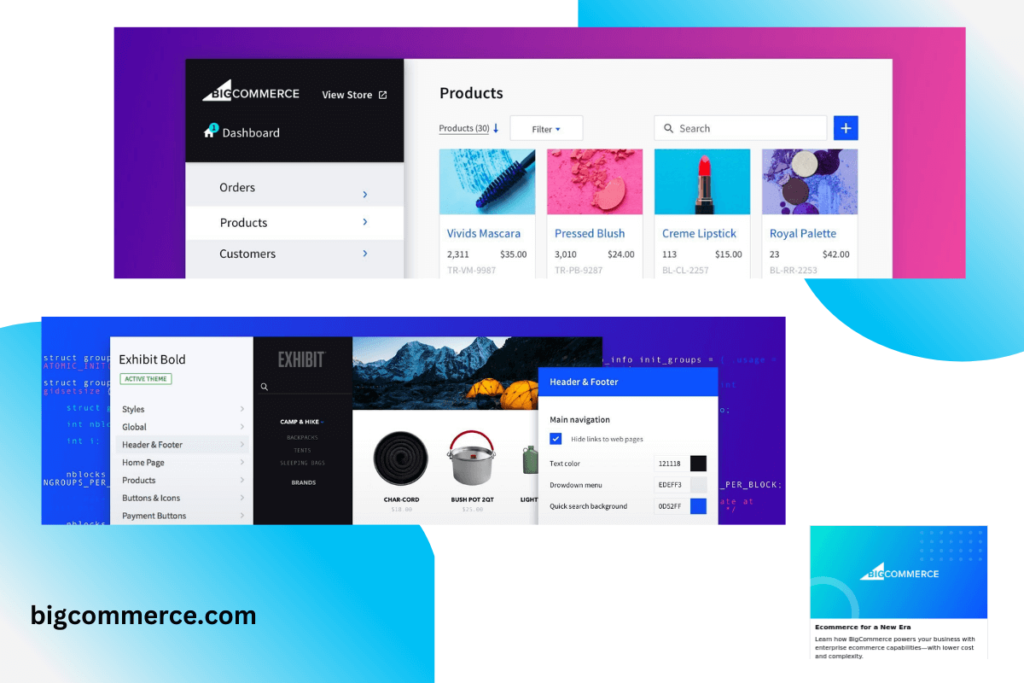
BigCommerce is a development kit that provides a range of eCommerce options for developers. The features include eCommerce payment methods, SEO optimization tools, and websites integrated with BigCommerce tools.
The BigCommerce platform offers a simple way to integrate your website with other eCommerce solutions, such as PayPal and Google Checkout. This means that you can sell products out of BigCommerce and use these payment methods with the rest of your eCommerce business.
One of the best things about the BigCommerce platform is that it’s easy to use. The back-end system is designed for entrepreneurs who are new to eCommerce and need a simple platform for selling their products online. BigCommerce is a good choice for startups that are looking for an easy-to-use eCommerce platform.
» MORE: BigCommerce Pricing
6. Wix – best for free eCommerce
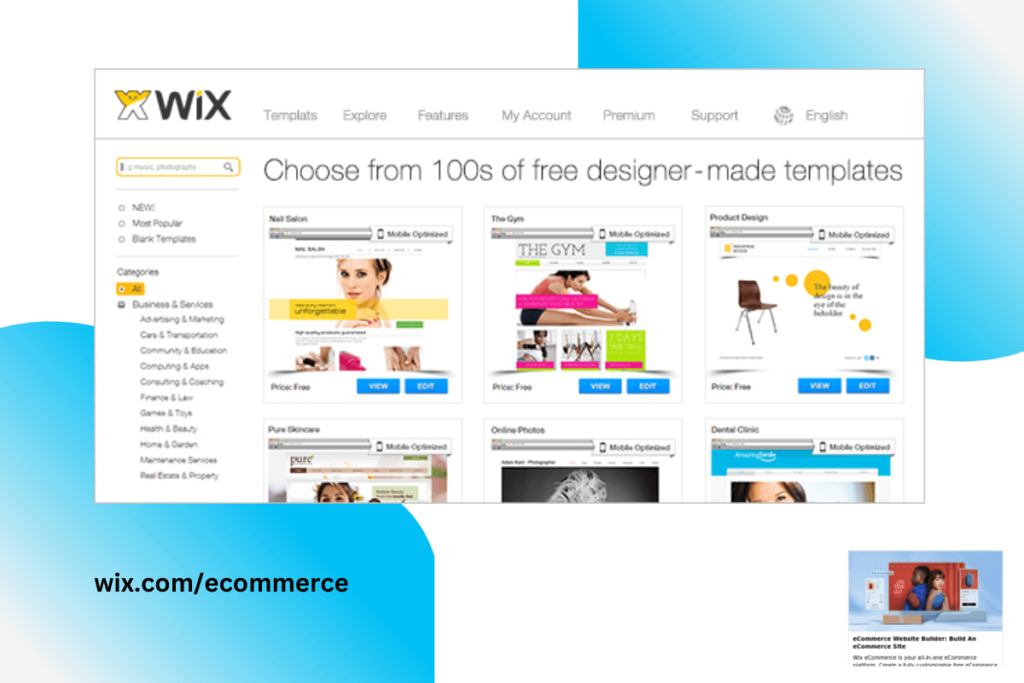
Wix is a great eCommerce platform to use when you have a website that you want to change into an eCommerce store. The Wix platform makes it easy to set up a website and includes free features like SEO optimization tools, shopping cart integration, and an online payment gateway.
Wix offers a simple drag-and-drop system for building your website and integrating it with your eCommerce platform. This means that you can quickly learn how to use the Wix platform without needing any technical experience. The platform is also easy to use and offers a good range of features to sell your products online.
The Wix platform is not the most advanced eCommerce platform, but it is helpful for small businesses that want to get started selling their products online. The platform is easy to use, and it’s also free for startups, which means that you don’t need to worry about spending money on your eCommerce website.
» MORE: Wix Ecommerce Pricing
7. Magento – best for eCommerce experts
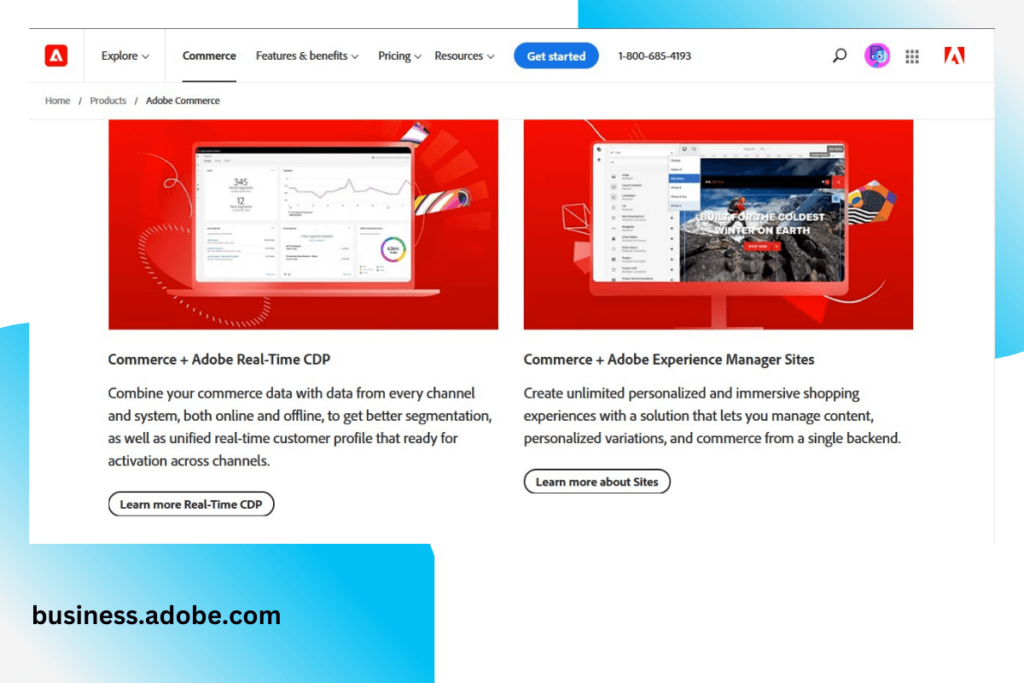
Magento is a popular eCommerce platform that startups and small businesses use. The platform includes features such as SEO tools, user accounts, and an integrated payment gateway.
One of the biggest features that are available with the Magento platform is SEO tools. This means that you can optimize your store for search engines and increase your online exposure. Some of the SEO tools include improved search engine listings, automated meta-data, and site links.
The Magento platform is designed for experienced eCommerce entrepreneurs. It’s also quite expensive to use, which means that startups will need to get some financial backing before they can start using the platform. Again, Magento is a good choice for startups that already have some financial backing and need a more advanced eCommerce plugin platform.
» MORE: Best Magento Hosting
8. Volusion – best for online retailers

The Volusion platform offers a range of eCommerce features that are useful for startups and online retailers. The features include integrated payment solutions, SEO tools, and an optional website builder.
One of the best things about the Volusion platform is that it’s easy to use. The platform is simple to learn and includes a drag-and-drop system to add new products and pages quickly. So, you can learn how to use the platform without needing any technical knowledge, making it a good choice for small eCommerce entrepreneurs.
The Volusion platform is also easy to customize and edit. You can change the colors and add your own custom logo, for example. This means that you can create your own unique eCommerce website without needing any design experience.
» MORE: Best eCommerce Platforms For Grocery
9. Weebly – best for all levels of experience
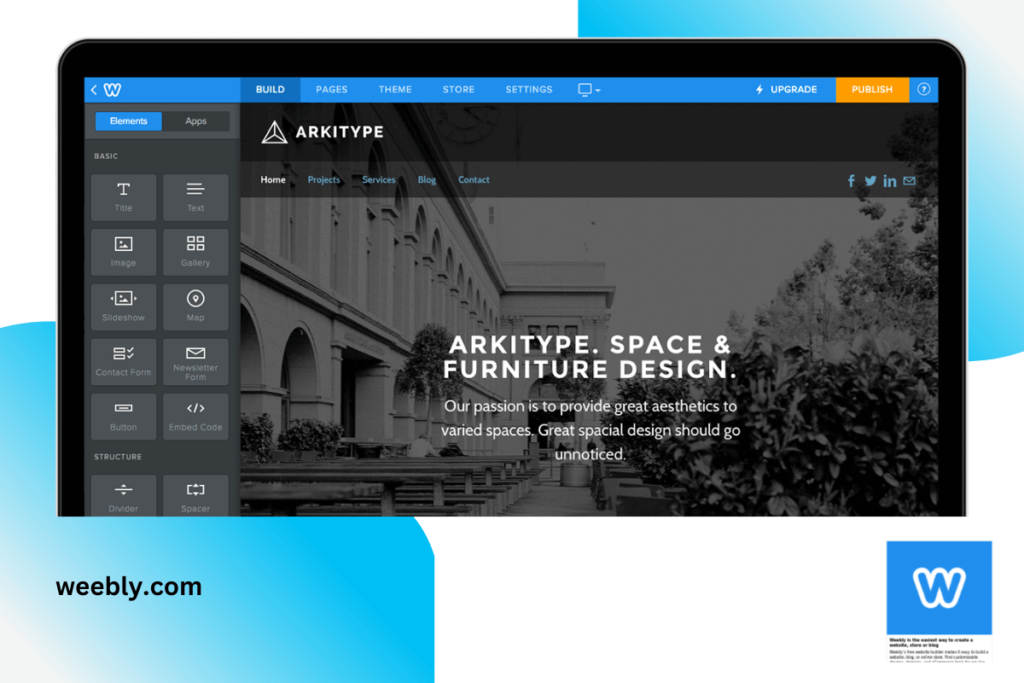
If you’re looking for a simple eCommerce platform that’s easy to use, Weebly is one of the best options available. You can create a free eCommerce website without paying any setup fees or monthly eCommerce hosting fees.
Weebly is suitable for all levels of experience. This means that you can create your first online store quickly and easily without learning any programming skills or software. In addition, you can integrate Weebly with a range of payment solutions, including the popular PayPal platform.
Weebly is a good choice for both beginners and experienced eCommerce website owners. The platform is simple to use and flexible enough for experienced website owners, while the basic design tools make it suitable for newcomers. The site has a simple eCommerce website builder built into the platform to be used as an all-in-one solution.
» MORE: Best Ecommerce Platforms For Clothing
10. Shopify – best for website owners
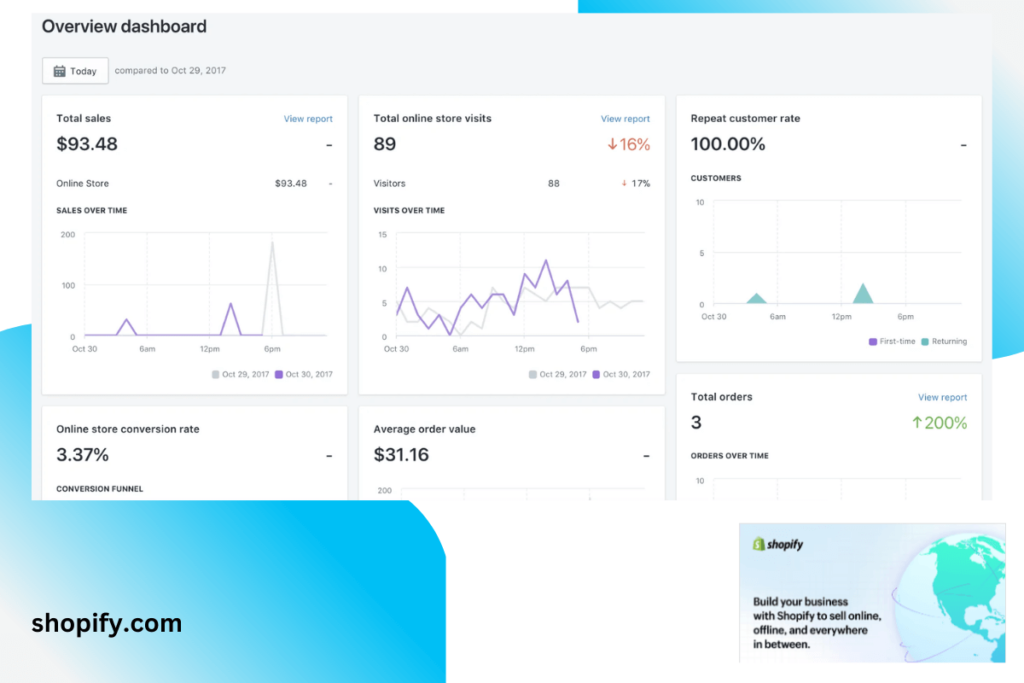
Shopify is one of the most popular eCommerce store builders available today. This platform is simple to use and suitable for both beginners and experienced website owners. If you want a good eCommerce website without dealing with programming or design, Shopify is well worth looking at.
Shopify is a solid choice for all eCommerce website owners, as it is quick and easy to install and has a good range of featured tools. First, the platform does not require you to be a programmer or have any website design experience. Second, it has a very good-quality theme builder, which will give you the quality and appearance that you want.
Also, Shopify eCommerce software has outstanding customer support, which is available to help you in the beginning and all subsequent stages of the project. Finally, it has an excellent App Store, allowing you to find all the tools you need for your site. A big plus for me is the plugins that you can install on your WordPress site, theoretically without any problems.
» MORE: Is Shopify The Best ECommerce Platform?
The most common mistake startup eCommerce companies make when choosing a platform
By far, the most common mistake that new startups make when choosing their platform is to fail to consider subscriptions and ongoing costs. Choosing an eCommerce platform is a big decision for a startup because most platforms require a monthly subscription. So, make sure you know how much you’ll spend on eCommerce platform fees before you make your decision.
The costs and fees can quickly add up and eat into your profit margins. For example, if you’re paying $400 each month to use Shopify, that’s $4,800 per year. That’s money that could be better spent on other aspects of your business.
A good eCommerce platform for startups should be cheap to use and shouldn’t have a long-term contract. You’ll want the ability to easily cancel your contract if you decide that you don’t need the extended features of a more expensive platform.
Take the free trials and check out each platform to see which is best for your startup.
Picking the right platform is a crucial decision for your eCommerce business. The platform will be responsible for your online reputation, product listings, and customer validation. It’s best to take the time to choose a good solution rather than choosing a cheap or free option out of desperation.
Almost every platform listed offers either a free account or trial, and you should take a look at each and see if they meet your needs. Don’t take shortcuts because you’re in a rush to get your store up and running. An excellent free trial will help you ensure that the platform is a good fit for your business.
» MORE: What Is The Fastest eCommerce Platform?
Conclusion
There are a variety of different eCommerce platforms available to startups and small to medium-size businesses. It can be challenging to choose which platform would be best for your business, so you’ll want to take some time to think about what you need in a website and a platform for your business.
For example, if you’re planning a physical retail store, you’ll probably want to look at Magento or Shopify. On the other hand, if your business sells online only and needs a simple eCommerce website that you can update easily, then Weebly will work well for you.
Finally, if you’re looking for a more advanced platform with a lot of premium features, then you may want to consider a platform like WooCommerce because you’re in total control of it. You choose your host, your theme, and also your domain. You can customize your WooCommerce store from the ground up to make it any way you like.
Allow your creativity to flow
The worst thing you can do is spend your time fretting over which platform will work best. Always remember that you can switch platforms at any time, and you probably will sometime down the line when you see that one has features that you’re currently in dire need of.
Remember, a good platform is there to serve you, not the other way around. Therefore, you should focus on your users’ experience when they shop at your store and not worry too much about whether or not it’s built with WordPress, Shopify, Magento, or another platform.
